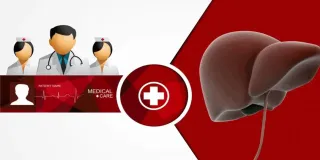Start Your
Healing Journey
Are you feeling frustrated and hopeless about your health? Are you tired of getting prescription after prescription for symptoms that never go away? At Naples Vitality, we empower you to take charge of your health and the first step is learning how to unlock your body's ability to heal naturally through our training programs.

Why Naples Vitality?
“Why am I still sick?” We hear this time and time again from new clients who have seen many providers and even specialists before. We know it’s been frustrating – but the good news that you're finally in the right place!
Unlike many health providers who follow a generic protocol, we take a personalized approach using advanced lab testing paired with up-to-date nutritional science so we can identify exactly what’s out of balance and then help your body heal, naturally.

Our Approach
Our functional medicine approach is unique because it's personalized and comprehensive. Our goal is much more than just resolving your chronic health complaints. We want to help you master vitality and we achieve this through a blend of traditional and functional medicine modalities to safely create optimal health and wellbeing.
After our in-depth intake, exploring both past and present symptoms and reviewing lab tests, we’ll craft a personalized treatment protocol to move past chronic health issues and set you up for long-term health.

Root Cause Of Your Illness
At Naples Vitality, we focus on getting to the root causes of your chronic wellness issues – examining the key imbalances that are responsible for virtually all symptoms you’re experiencing right now.
We focus on what people struggle with most as they age. We look at all the triggers of chronic illnesses – including toxicity in your home or work-place, potential food intolerances and allergies, gut & hormonal imbalances that are often the real reasons you feel so fatigued, can't release stubborn weight, and face neurological symptoms including moodiness and brain fog.

Why We're Different
Functional Medicine is the medicine of the future. We use it to restore your body’s innate healing potential, and not just treating symptoms. It uses a combination of science-driven testing with healthier lifestyle practices, to treat the whole person and not just parts of your body.
A “one size fits all” approach never works. This is why people often don't get the answers they are looking for from their primary care doctors. At Naples Vitality, we don't rely on basic solutions or guesswork, we pinpoint the real reason why you don't feel well – even if you've been told that "everything's fine".
Popular Articles

How Probiotics Help Improve Your Immune System
Probiotics are beneficial flora that can aid in gut health and boost immune function. ...more
Immune system
October 12, 2023•2 min read

Dealing With Depression And Anxiety When You're In The Business World
Getting help from a professional should be the first thing you do if you deal with depression. ...more
Anxiety ,Depression
October 12, 2023•2 min read

The Importance of Liver Health
A very important bodily organ to take care of is your liver. If you’re overweight or you eat a lot of fatty foods, your liver could become enlarged. Think of your liver as a processing area for all th... ...more
Diet
October 12, 2023•2 min read

What Are the Symptoms of GERD in Adults?
While most of us are familiar with acid reflux, gastroesophageal reflux disease, or GERD, is not as widely recognized. ...more
Gut Health ,GERD
October 12, 2023•9 min read

Myths And Facts About Boosting Your Immune System
Protecting your immune function is one of the key strategies for safe-guarding your health, aging more gracefully, and preventing chronic illnesses. ...more
Immune system
October 12, 2023•4 min read

How To Eat Healthy On A Budget
Many people have the misconception that healthy eating means having to spend a lot of money on fresh, nutritious foods. ...more
Diet
October 12, 2023•2 min read
What Others Have Said About Their Amazing Results
Take The First Step Today On Your
Journey Back To Health
At Naples Vitality, we believe that you can't make new decisions without new information first. That's why we encourage you to watch one of our masterclasses on hormones, inflammation, diabetes or thyroid & adrenals first.
This way, you can make an informed decision whether our approach is right for you.
About Naples Vitality
Known for his successful approach towards chronic wellness issues, Dr. Linell King and the team at Naples Vitality combine an integrative, functional medicine approach informed by advanced lab testing.
Our unique approach to diagnosing and resolving chronic health issues recognizes that lasting health depends on resolving the underlying root causes of your symptoms. Click here to learn more »
Unique Approach
One of the unique aspects of Naples Vitality is that we look at the body in a holistic manner... evaluating the imbalances between different organ systems, rather than looking at organs in isolation.
Our approach seeks to empower you with lifelong health skills that serve you and your entire family – supported by our entire team. Click here to learn more about our approach with Dr. Linell King.
Your Next Steps
After you have reviewed the information on our website, we encourage you to watch one of our amazing masterclasses or our free mini-course on conquering inflammation & autoimmunity that are part of our educational programming.
This way, you can make an informed decision whether partnering with Naples Vitality is right for you. Learn more...
Copyright © 2023 Naples Vitality
• 2390 Tamiami Trail N STE 108, Naples, FL 34103 - United States •
Phone: 239.465.0098
